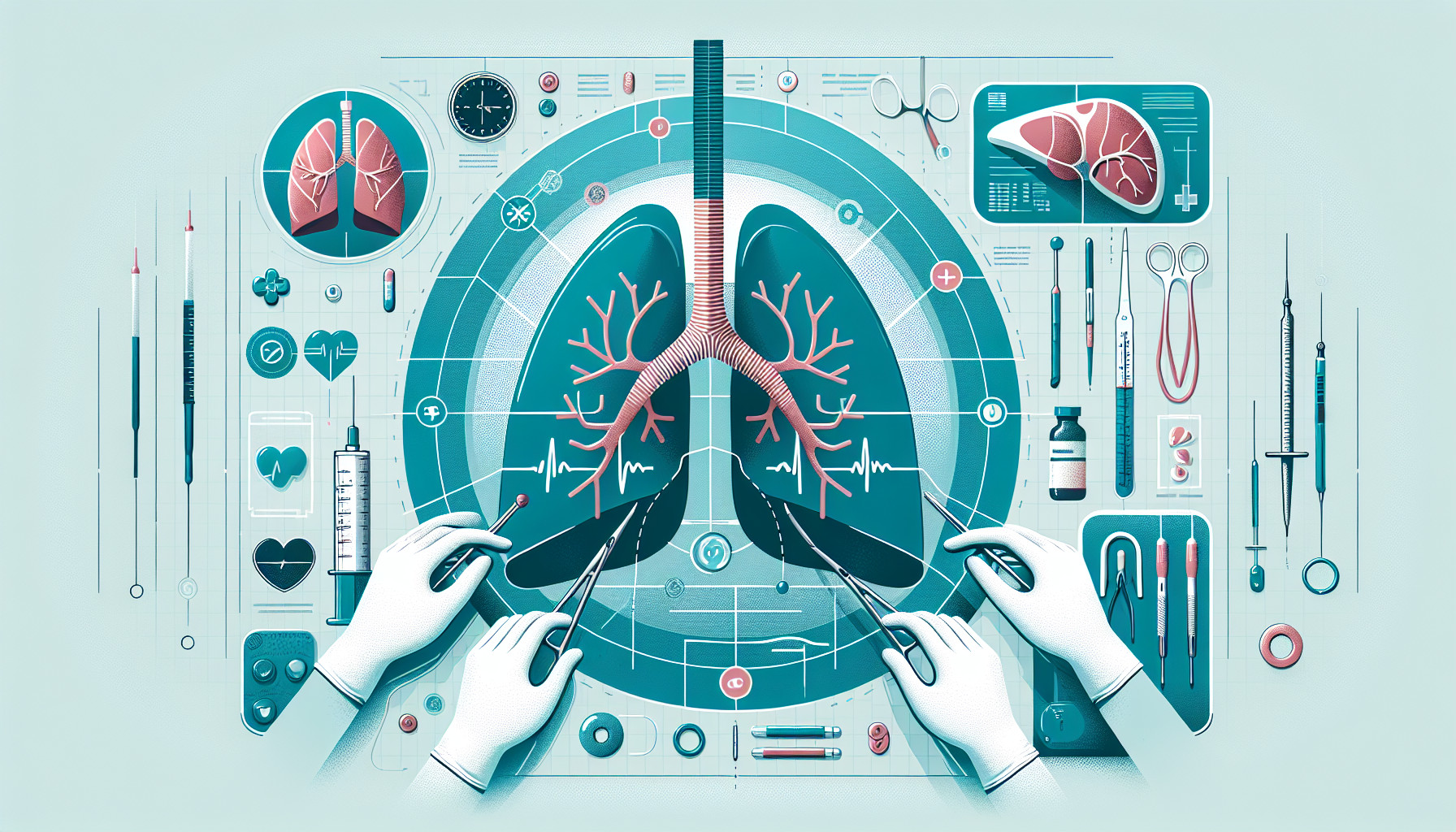Our Summary
This research paper assesses the risks and benefits of open lung biopsies in children and newborns who are on extracorporeal membrane oxygenation (ECMO) - a treatment that uses a pump to circulate blood through an artificial lung back into the bloodstream. The study was conducted in a pediatric ECMO center in the Netherlands.
During the study, 25 open lung biopsies were performed on 19 newborns and 6 children (up to 15.5 years old). The results of the biopsies were able to provide a clear diagnosis of the underlying lung disease in roughly half of the patients (52%). In another 36% of patients, specific abnormalities were found, while in the remaining 12%, only nonspecific abnormalities were described.
The results of the biopsies helped guide treatment. In 24% of the cases, the ECMO treatment was stopped due to a diagnosis of alveolar capillary dysplasia/misalignment of pulmonary veins. In another 24% of the cases, the patients were started on corticosteroids. Importantly, all patients survived the biopsy procedure, and complications such as bleeding were rare.
The study concludes that open lung biopsies during ECMO treatment in newborns and children are safe, with a minimal risk for blood loss and death related to the biopsy. The procedure can also be crucial in diagnosing the underlying lung disease, guiding the cessation of ECMO treatment, and avoiding the continuation of ineffective treatment, particularly in newborn patients.
FAQs
- What is the purpose of an open lung biopsy in pediatric ECMO patients?
- What were the findings of the study on pediatric patients who underwent an open lung biopsy during ECMO?
- What are the risks associated with an open lung biopsy during an ECMO run in neonates and children?
Doctor’s Tip
A helpful tip a doctor might tell a patient about lung biopsy is to make sure to follow all pre-procedure instructions given by the medical team, such as fasting before the procedure and avoiding certain medications. It is also important to inform the medical team about any allergies or medical conditions you have before the biopsy. After the procedure, it is important to follow post-procedure care instructions carefully to minimize any potential complications and promote healing.
Suitable For
Patients who are typically recommended for lung biopsy include those with suspected irreversible lung disease, those who have not responded to other diagnostic tests or treatments, and those who require a definitive diagnosis in order to guide therapy. In the study mentioned above, patients who underwent open lung biopsy during ECMO treatment were able to receive a classifying diagnosis of underlying lung disease, leading to appropriate treatment decisions such as withdrawal of ECMO or initiation of corticosteroids. The procedure was found to be safe with minimal risk of complications. In particular, patients with conditions such as alveolar capillary dysplasia or misalignment of pulmonary veins may benefit from a lung biopsy to guide their treatment.
Timeline
Before lung biopsy:
- Patient presents with respiratory symptoms and/or abnormal imaging findings
- Consultation with a pulmonologist or other specialist
- Discussion of risks and benefits of lung biopsy
- Consent obtained from the patient or their legal guardian
- Pre-operative testing such as blood work and imaging studies
- NPO (nothing by mouth) status before the procedure
- Anesthesia consultation for sedation or general anesthesia
After lung biopsy:
- Recovery in a post-anesthesia care unit (PACU) or intensive care unit (ICU)
- Monitoring for complications such as bleeding or infection
- Pain management as needed
- Follow-up imaging studies to assess for any changes post-biopsy
- Discussion of biopsy results with the patient and their healthcare team
- Initiation of appropriate treatment based on biopsy findings
- Follow-up appointments with the healthcare team to monitor progress and adjust treatment as needed
What to Ask Your Doctor
- What is the purpose of a lung biopsy and why is it being recommended for me?
- What are the potential risks and complications associated with a lung biopsy procedure?
- How will the biopsy results help in diagnosing my lung condition and guiding treatment decisions?
- What is the likelihood of obtaining a definitive diagnosis from the biopsy?
- Will I need to be sedated for the procedure and how long will it take?
- How soon will I receive the results of the biopsy and how will they be communicated to me?
- Are there any specific post-biopsy care instructions or restrictions I should follow?
- Are there any alternative diagnostic tests or procedures that could be considered instead of a lung biopsy?
- How many lung biopsies have you performed and what is your experience with this procedure?
- Are there any specific considerations or factors that make me a good candidate for a lung biopsy?
Reference
Authors: Houmes RJ, Ten Kate CA, Wildschut ED, Verdijk RM, Wijnen RM, de Blaauw I, Tibboel D, van Heijst AF. Journal: J Pediatr Surg. 2017 Mar;52(3):405-409. doi: 10.1016/j.jpedsurg.2016.11.031. Epub 2016 Nov 14. PMID: 27894766
